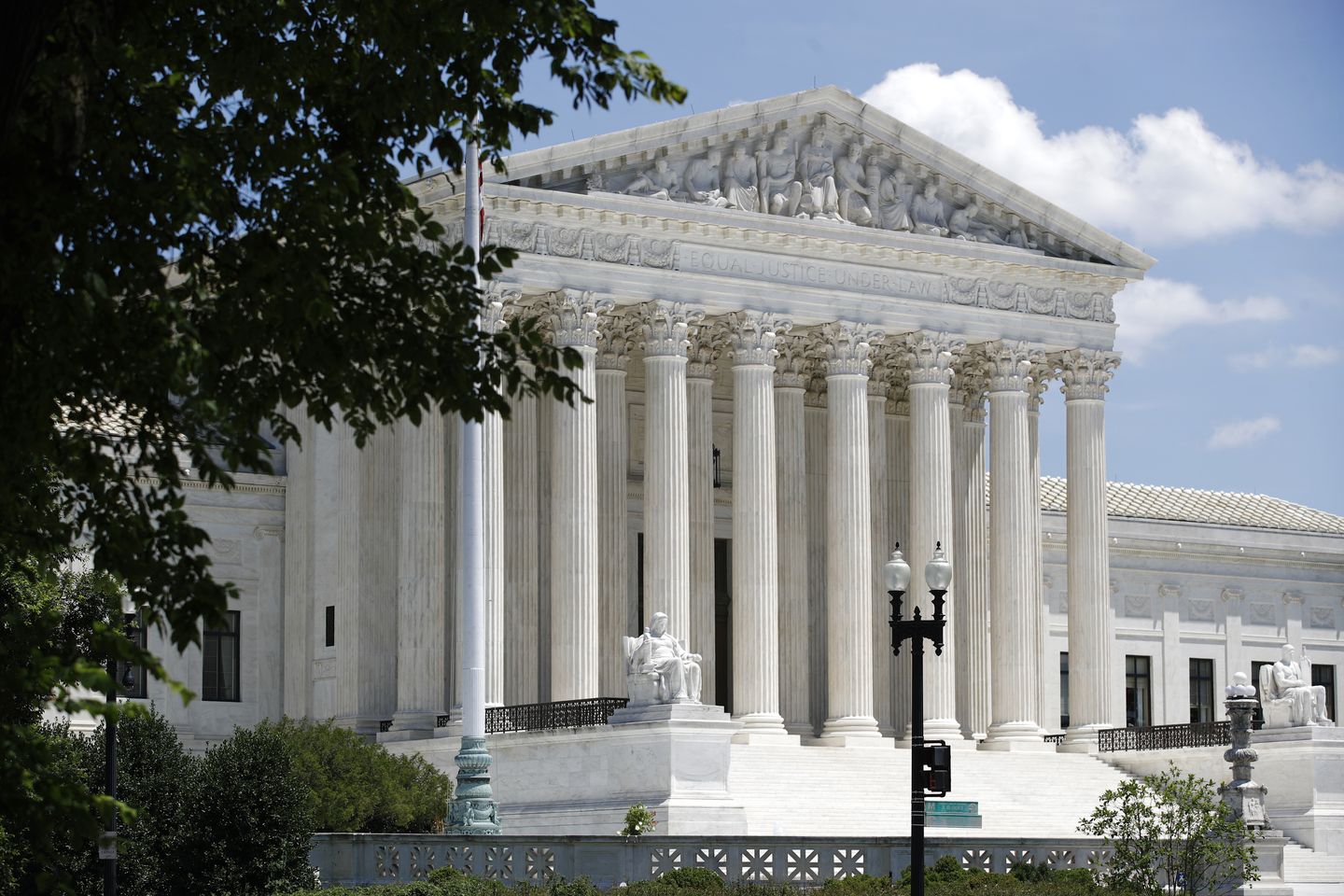
The Supreme Court announced Wednesday it will allow, for now, a transgender boy to use the bathroom of his choosing in a South Carolina school.
The justices refused to block a lower court order that permits the transgender student to use the school bathroom based on the student’s preferred gender. The court noted it was not weighing the legal issue directly, only refusing to grant relief in the state’s emergency request.
“The denial of the application is not a ruling on the merits of the legal issues presented in the litigation,” the order reads.
It noted Justices Clarence Thomas, Samuel A. Alito Jr. and Neil M. Gorsuch would have granted the state’s request to halt the lower court’s decision to allow the transgender student access to opposite sex facilities.
South Carolina last week asked the Supreme Court to allow it to enforce state law — and President Trump’s directive — to have schools’ bathroom use based on biological sex.
In a dispute involving a ninth-grade transgender boy, the state had asked the justices to block an injunction issued by lower courts ordering that the boy — identified in documents as “John Doe” — be able to use the bathroom of his preferred gender.
The state’s fiscal appropriations law requires a district to comply “with a requirement that it designate its multi-occupancy public school restrooms for use only by members of one sex, and that it limit entry into such restrooms to members of the designated sex” to receive some of the public funding.
South Carolina also argued that the Department of Education has found that schools violate Title IX of the Education Amendments of 1972 if they allow students to use restrooms, locker rooms and intimate facilities based on gender identity.
Though the injunction only applies to the one school and the transgender student, the state said that the lower court’s order put the school district in a difficult position.
South Carolina Attorney General Alan Wilson said the state is disappointed but will comply with the court’s decision.
“This ruling only maintains an exception for one student. The state’s bathroom law remains in full effect for everyone else. We may have lost this battle, but we believe we will ultimately win the war,” he said.
“The order made it clear that it wasn’t a ruling on the merits of the legal issues; the Court just believed the standard for emergency relief wasn’t met. We will continue this fight at the Fourth Circuit and, if necessary, take it all the way to the U.S. Supreme Court. We are confident the law is on our side and will be upheld in the end.”
Alexandra Brodsky, litigation director for Public Justice’s Students’ Civil Rights Project representing John Doe, said the Supreme Court’s decision shows trans kids are not “threats.”
“Today’s decision from the Supreme Court reaffirms what we all know to be true: Contrary to South Carolina’s insistence, trans students are not emergencies. They are not threats,” she said.
“They are young people looking to learn and grow at school, despite the state-mandated hostility they too often face. We are so thrilled that our client will continue to be able to use boys’ restrooms while his appeal continues, and hope today’s decision will provide hope to other trans students and their families during these difficult times.”
Meanwhile, the justices will hear disputes over the issue of transgender students’ access to school sports during the court’s upcoming term, which begins in October.
The cases are West Virginia v. B.P.J. and Little v. Hecox, which have to do with West Virginia and Idaho enacting bans on transgender students in girls’ sports.
Two transgender athletes challenged the state laws based on a violation of the Equal Protection Clause of the Constitution, which requires the government to treat everyone similarly.
The South Carolina case is State of South Carolina v. Parents, Jim and Jane Doe.





![Gavin Newsom Threatens to 'Punch These Sons of B*thces in the Mouth' [WATCH]](https://www.right2024.com/wp-content/uploads/2025/08/Gavin-Newsom-Threatens-to-Punch-These-Sons-of-Bthces-in-350x250.jpg)
![ICE Arrests Illegal Alien Influencer During Her Livestream in Los Angeles: ‘You Bet We Did’ [WATCH]](https://www.right2024.com/wp-content/uploads/2025/08/ICE-Arrests-Illegal-Alien-Influencer-During-Her-Livestream-in-Los-350x250.jpg)








